Investigation: ‘Students for Justice in Palestine’ Locked Down Its Annual Conference, What Was It Hiding?
SJP held its 2019 conference at U. Minnesota under tight secrecy, as its tactics of intimidation and disruption gained national attention after Vassar’s president condemned as anti-Semitic SJP chants directed at an Israeli Jewish speaker.
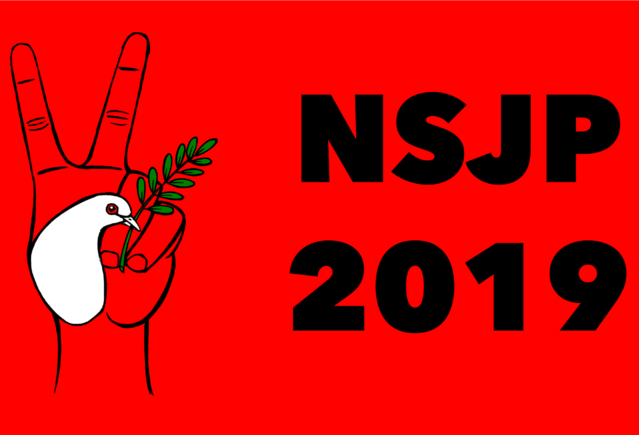
Last week, we reported on the disruption of Israeli Hen Mazzig’s talk by Vassar College Students for Justice in Palestine (SJP) in Vassar President: It was anti-Semitic to shout at Israeli Jewish speaker “From the River to the Sea, Palestine will be Free”.
In a breath of fresh air, Vassar president Elizabeth Bradley issued an admirably strong condemnation of SJP’s behavior, stating that shouting “from the river to the sea, Palestine will be free”—a call for the extermination of Israel and the subjugation of Israeli Jews—at an Israeli Jewish speaker was anti-Semitic:
“the use of the chant—in this way, directed at this speaker—crossed the line into anti-Semitism.”
The reactions of some other university administrations to SJP’s characteristic anti-Semitism, however, have often fallen short of the standard president Bradley has established. SJP’s annual hate-filed conference, held only a few weeks earlier at the University of Minnesota, elicited barely a peep from the UMN administration, despite clear evidence of bigotry, secrecy, and even possible building code violations taking place.
Table of Contents
- Students for Justice in Palestine: A Vicious History
- National SJP Conference 2019 at the University of Minnesota
- UMN’s Reaction
- Conference Tactics: Hateful Language, Questionable Funding, & Secrecy
- American Muslims for Palestine Connection
- Conference Secrecy
- Here’s What SJP Was Hiding
- External Reaction – SJP as Liberators
- Protest Outside – But No Disruption Unlike SJP Protests
- Conclusion
1. Students for Justice in Palestine: A Vicious History
On November 1st-3rd, 2019, the University of Minnesota played host to the 9th annual conference of the radical anti-Israel campus group, Students for Justice in Palestine (SJP).
Each year, the SJP’s national leadership works with a different SJP campus chapter to organize the days-long hate-fest. SJP representatives from colleges all over the country travel to the conference to discuss Boycott, Divestment, and Sanctions (BDS) campaigns against Israel, network with fellow SJP students, and hear from dozens of professional anti-Israel activists.
Though NSJP and the conferences themselves purport to be “anti-fascist,” anti-racist, and progressive, SJP events have traditionally been breeding grounds for plain old anti-Semitism, using ancient anti Jewish tropes recycled to appeal to a young, ‘intersectional’ audience.
We’ve covered many examples of this type of behavior, including when:
- In 2015, SJP at Northeastern University engaged in “dorm storming” and marched to the chant of “Long Live Intifada” (the bloody suicide bombing campaign directed at Israeli civilians).
- Also in 2014, SJP’s annual conference featured South African BDS activist Muhammad Desai, who defended “shoot the Jew” chants issued at a BDS rally in Johannesburg.
- Also in 2014, Vassar SJP began a social media campaign focused on the race of the crowd at a lecture there by Professor Jacobson, casting the appearance as an old white Zionist alumni intrusion onto campus, and then tweeting actual anti-Semitic Nazi propaganda.
- In 2015, SJP students all over New York state hijacked #MillionStudentMarch and blamed Zionists for tuition problems.
- Also in 2015, SJP students hijacked the BlackLivesMatter movement, protesting on California’s San Mateo Bridge and eventually causing car accidents.
- In 2015, SJP students shouted down an Israeli professor during his talk at UMN law school.
- In 2017, SJP at the University of Illinois at Urbana-Champagne organized a “Smash Fascism” rally, and used it as an excuse to trash Zionism and attack Israel as a White Supremacist fascist country.
- In 2018, SJP at UCLA tried to shout down a Lebanese Christian Zionist speaker, screaming “F**k white supremacy!”
SJP chapters frequently justify their members’ illiberal behavior by claiming that the crimes of “state violence, settler-colonialism, and imperialism” are those of which it considers Israel to be uniquely guilty.
Similarly, SJP frequently equates Zionists—those who support Jewish self-determination and ethnic nation-statehood in Israel—to “fascists, [and] white supremacists”.
This kind of rhetoric makes SJP, according to a new report released by the Institute for the Study of Global Antisemitism and Policy (ISGAP), “a main driver of Jew-hatred on campus.”
You can read the full report, “Antisemitism, Violent Extremism and the Threat to North American Universities: The Contextualization of the National Students for Justice in Palestine (NSJP),” here and below.
NSJP 2019 ISGAP Report Long Version by Samantha Mandeles on Scribd
2. National SJP Conference 2019 at the University of Minnesota
This year, the national Students for Justice in Palestine claimed that the conference was “committed to embracing the fullness of international liberation through a framework that refuses to sacrifice the demands of those who struggle against state violence, settler-colonialism, and imperialism”.
But, the NSJP 2019 conference literature celebrated BDS, demonized Zionism, and protested against “attempts to sanitize the Palestinian struggle”—doublespeak for excusing or downplaying Arab violence against Jews in Israel.
3. UMN’s Reaction
Familiar with SJP’s history of spreading hate, the pro-Israel organization StandWithUs prepared a petition calling for the University of Minnesota to condemn the conference. According to the petition, each signature triggered the following letter‘s delivery to university president Joan T.A. Gabel:
Dear President Gabel,
As a strong supporter of free speech and academic freedom on campus, and an opponent of all forms of discrimination, I am deeply concerned about the National Students for Justice in Palestine (SJP) Conference being held at UMN in November, 2019. Because UMN is a public institution bound by the First Amendment to the Constitution and must uphold academic freedom, I understand that this concerning conference must be permitted to proceed. However, in upholding academic freedom I believe you and your administration also have a responsibility to explicitly condemn campus events that promote hatred, intolerance, and opposition to the free exchange of ideas.
As you may know, SJP has a long record of spreading hate, supporting violence, and violating the free speech rights of people they disagree with on campus. Last year’s National SJP Conference explicitly promoted the destruction of Zionism, celebrated disruptions of speakers who support Israel’s right to exist, and glorified terrorism against Israeli civilians. An individual with a history of blatant anti-Semitism has already announced that she will be speaking at this year’s conference on your campus. This hate cannot go unanswered.
UMN’s guiding principles call for a campus environment that “embodies the values of academic freedom,” while providing, “an atmosphere of mutual respect, free from racism, sexism, and other forms of prejudice and intolerance”.
As such, I urge you to:
- Strongly condemn the National SJP Conference for promoting hate, supporting violence, and encouraging violations of free speech and academic freedom. This recent statement from the Chancellor of UMASS Amherst is a good model: https://www.umass.edu/newsoffice/article/statement-university-massachusetts-amherst
- Develop and share concrete steps UMN will be taking to foster greater tolerance and protect the rights of all UMN students.
- Respond to rising efforts to isolate Jews, Israelis, and their supporters by celebrating and growing your cooperation with these communities and the organizations that represent them on campus.
The petition received several thousand signatures.
In an article about the conference and petition, the Jewish Journal quoted StandWithUs Executive Director of Research and Strategy Max Samarov:
Last year, [the] National SJP openly called for silencing speakers who support Israel’s existence. They also called for the destruction of Zionism, and violence against Israelis. While free speech laws may require UMN to allow the conference, this should not stop university leaders from unequivocally condemning SJP’s long record of hate. We also encourage UMN to use this as a teachable moment to educate the campus community about anti-Semitism and foster civil dialogue about the Israeli-Palestinian conflict.
But it appears that university president Gabel never issued any comment whatsoever on the conference. Instead, the Jewish Journal reported,
Any registered student group is allowed to reserve space on campus, provided they comply with relevant policies,” the [official University of Minnesota] spokesperson said in an email to the Journal. “The University of Minnesota encourages students and student groups to exercise their freedom of expression and a broad spectrum of ideas. We do not make decisions based on content.
4. Conference Tactics: Hateful Language, Questionable Funding, & Secrecy
Perhaps buoyed by the university’s non-response to its upcoming conference, NSJP made a pledge to its attendees and supporters on its website:
The 2019 National SJP Conference will achieve the following goals:
- Recognizing the current political climate and building on the visibility of Palestine: Support for the Palestinian cause is increasing within mainstream politics. The election of progressive representatives, including Rashida Tlaib and Ilhan Omar, who openly endorse the Boycotts, Divestment, and Sanctions movement, demonstrates this shift. This reflects a critical juncture in the history of the solidarity movement, as calls for justice are permeating traditional spaces of power. The solidarity movement must amplify these calls, not only by pushing for policies that demand the end of the Israeli occupation, but also by firmly challenging the notion that justice for the Palestinian people can be attained within a Zionist framework. A well-organized grassroots movement that is adaptable, while also able to maintain a critical view of U.S. involvement in Palestine, is necessary for advancing the objectives of the solidarity movement.
- Bridging the grassroots and grasstops: Now, more than ever, the grassroots work taking place on our campuses and in our communities must meet the grasstops– those very same electoral and legislative spaces working to maintain the status quo. Across grassroots and grasstops organizing, those who challenge the status quo on Palestine are met with fierce resistance as their positions are framed as “fringe.” In order to challenge the relegation of Palestine solidarity work to the periphery of political discourse, our movement must demonstrate its breadth and wide-reach. We must collectively work to orient the solidarity movement toward the frontlines of the changing discourse on Palestine. In doing so, we will remain steadfast in confronting those narratives that dilute the history and demands of the struggle.
- Articulating the full history of Palestine as intertwined with the future of liberation: The history of Palestine, and the Palestinian struggle against Zionism, extends beyond the confines of 1967, and well before the Nakba (the Catastrophe) of 1947-1948. It is important that this be recognized by those who claim to act in solidarity with the Palestinian people, many of whom engage solely in anti-occupation advocacy– that is, advocacy which relies on a version of Palestinian history limited to the Green Line. In doing so, they forego the rights of those Palestinians in refugee camps, in diaspora, and in 1948 lands. The student solidarity movement must be equipped with a holistic understanding of the full history of the Palestinian people, in order to advance an unequivocally anti-Zionist movement for Palestinian liberation.
- Reaffirming the fullness of Palestinian liberation: The solidarity movement cannot ignore the shift we are witnessing in mainstream political discourse surrounding Palestine. This critical juncture presents an opportunity for radical change. Nevertheless, we also know that the solidarity movement, and National SJP in particular, must also confront the danger of neoliberal co-optation which has historically dealt lasting damage to mass movements for justice. We must reflect on the growth of the movement and collectively revisit questions of structure, points of unity, and strategic priorities. In doing so, we will be equipped to overcome attempts to sanitize the Palestinian struggle for centrist consumption.
SJP chapters—especially the hosting chapter at the University of Minnesota—promoted the conference enthusiastically for weeks ahead of time.
Unsurprisingly, their publicity materials featured images of the shape of Israel totally encompassed by the black and white fishnet style of kefiyyeh popularized by Yasser Arafat, the late chairman of the Palestinian Liberation Organization.
5. American Muslims for Palestine Connection
SJP at the University of Minnesota also fundraised for the event, managing to raise some money (though falling far short of their goal) using LaunchGood, a site that facilitates crowdfunding for “incredible Muslims worldwide.”
One of the donors was Mariam El-Khatib, an employee of one of SJP’s apparent benefactors, American Muslims for Palestine (AMP). El-Khatib is also a former president of SJP at the University of Minnesota.
We’ve covered the extremism of AMP before, including in:
- Investigation: Radical ‘American Muslims for Palestine’ a Key Connector of Anti-Israel Groups
- VIDEO: Anti-Israel Protesters Surround and Try To Intimidate Journalist Outside CUFI Summit
- Anti-Israel groups lock down planning for disruption inside Christians United For Israel Summit
- Investigation: Anti-Israel groups plan disruption of Christians United for Israel Annual Summit
- Rewarding Palestinian child exploitation: Janna Jihad goes to Congress
- Anti-Zionist Jews ban ‘Jewish Pride’ flag but embrace Palestinian flag in name of “intersectionality”
This particular AMP employee—El-Khatib—has justified the Arab stabbings of Jews in Israel, and labeled Israel an “Apartheid” state.
6. Conference Secrecy
Perhaps the open extremism of its fiscal sponsors and supporters helps to explain why details about this year’s conference were so enveloped in secrecy.
Though the University of Minnesota is a public university, registration, entrance, and attendance at the 2019 SJP conference was tightly controlled. It appeared that, though it was organized and partly funded by a registered student association and held directly on campus, the conference was barred to non-SJP students.
There also did not appear to be any mention of the event on the University of Minnesota’s student event page, though other SJP events have been posted.
Press coverage of the conference was evidently to be limited to pre-approved reporters from SJP-friendly organizations and publications, and the rules governing documentation of the conference stated that recording without prior authorization was also forbidden.
Moreover, as the Jerusalem Post noted, SJP kept its list of conference speakers closed to the public.
According to [pro-Israel campus group Students Supporting Israel (SSI)] co-founder Ilan Sinelnikov, the event was held in a building closed to the public, with curtains down over the windows. Students who walked in and out of the building “covered their faces like criminals.”
Indeed, photographs from outside the conference showed that attendees didn’t seem to want outsiders to recognize them.
Usually, when people hide their faces, it means they have something to hide.
SJP hiding their faces today at their national conference in Minnesota. #NSJP2019#NoHateOnCampus @SSI_Movement pic.twitter.com/pbnln889Dq
— Reservists On Duty (@reservistsduty) November 3, 2019
Furthermore, as SSI and its partner in protesting SJP, Reservists on Duty (RoD), pointed out, SJP appeared to have flouted the Minnesota Code of Ordinance, which states that “filling existing window openings or covering them with any materials is prohibited.”
SSI’s photographs appeared to show SJP’s possible violation of that ordinance; the following photo shows that the windows of the University of Minnesota conference venue, Tate Hall, were covered during the SJP event.
7. Here’s What SJP Was Hiding
Despite the closed nature of the SJP conference, SSI and RoD managed to share some material from the event. In one mailing, SSI and RoI sent out this image of an SJP conference presentation, noting that the slide glorified Ahmed Sa’adat, a leader of the organization Popular Front for the Liberation of Palestine (PFLP)—which has been officially designated as a terrorist group by the United States, the European Union, Canada, Australia, and Japan.
Some conference speakers also published small excerpts from their own presentations, revealing hints of typical SJP sentiments.
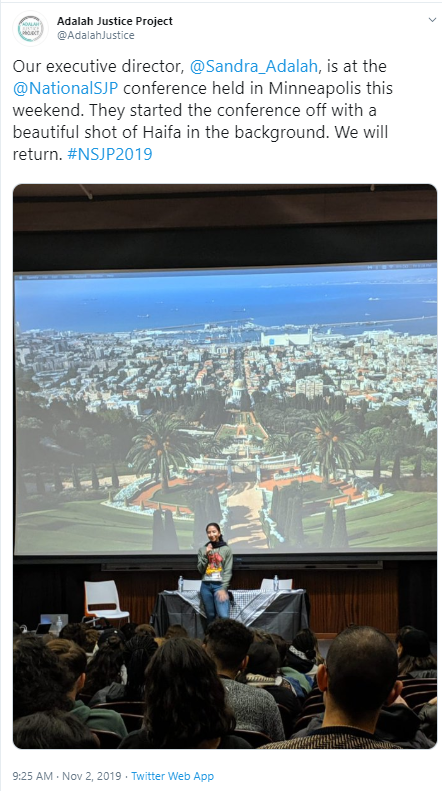
[A tweet by anti-Israel NGO Adalah showing its executive director giving a presentation at NSJP 2019. She uses a picture of the Israeli city of Haifa with a popular phrase implying that Palestinian Arabs will eventually all return to Israel and erase it Jewish character by overtaking the demographic Jewish majority.]
For her part, Qutami is pro-BDS, has voiced her support for convicted terrorist Rasmeah Odeh, and has reportedly blamed Palestinian-Arab gender violence on the “Occupation”.
8. External Reaction – SJP as Liberators
Still, two fawning news articles (both by the same staff writer, Farrah Mina) about the SJP conference in The Minnesota Daily presented SJP claims to be pro-“liberation” and anti-“oppression” without question. One read:
In addition to several guest speakers, the conference also featured a panel of experts who discussed the importance of approaching the Palestinian struggle in relation with other forms of oppression, such as anti-blackness, homophobia and transphobia as well as the oppression of Kashmiris and Kurds, among other people.
The Palestinian movement is an intersectional justice movement, meaning it is advocating for the liberation of all oppressed people, experts on the panel said.
“[Intersectionality] has always been part and parcel of our work…” said Raphael Eissa, a member of the NSJP steering committee which organizes the conference. “We also know that the struggle against oppression extends beyond a single people. It’s always been central to our work, and that’s how we grow as a movement.”
Comments on both articles were few, but unanimously critical of Mina’s positive portrayal of SJP.
9. Protest Outside – But No Disruption Unlike SJP Protests
And, though they were not permitted inside the conference, The Jerusalem Post reported that representatives of pro-Israel groups Reservists on Duty (ROD) and Students Supporting Israel (SSI) held a protest outside SJP’s conference.
The pro-Israel rally honored Israeli victims of Palestinian terror. Additionally, students held large posters countering the messages of SJP and shared their personal Israeli stories and experiences with passersby.
10. Conclusion
Despite the secretive and exclusionary practices the 2019 NSJP conference employed on campus—and the apparent violation of state ordinances—the University of Minnesota appears to have swept the controversial event under the rug. As far as we can tell, UMN has continued to ignore StandWithUs’s petition, and it has not published any follow up statements on UMN’s website (nor did any appear on Twitter, Facebook, or in any news article we could find).
Oddly, there has also been very little published—either by the university or by SJP—about the speakers and organizations who were given a platform during the conference, much less what was contained within their presentations (SJP UMN also refused to return press requests for comment). But SJP’s marked opacity about its conference—despite ample evidence that the annual event is a breeding ground for hateful hysteria and that its organizers are a main driving force behind campus anti-Semitism—does not appear to trouble UMN’s administration.
Thankfully, however, UMN’s strategy of willful blindness does not extend to all American universities; on the contrary, 2019 has witnessed push-back against SJP’s efforts to mainstream hate (not only has Vassar labeled SJP’s behavior anti-Semitic, but the University of Illinois chancellor and the Cornell University president have rejected bigoted SJP demands and rhetoric) and intimidate others.
UMN should take a cue from these evidently more courageous institutions and make it clear that its administration—not Students for Justice in Palestine—will set the rules and the consequences for students who break them.
———–
Samantha Mandeles is Senior Researcher and Outreach Director at the Legal Insurrection Foundation.
Donations tax deductible
to the full extent allowed by law.


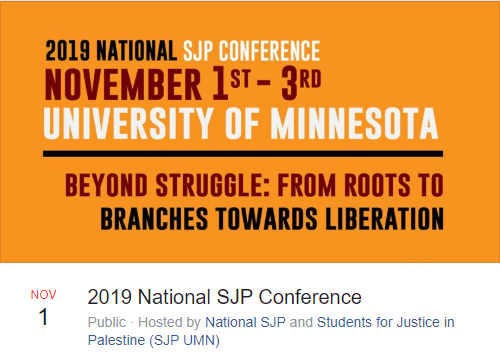
![https://www.facebook.com/SJP.UMN/posts/2584478448274922?__xts__[0]=68.ARAFT2HV70rzzNr49kVCdraS8GeTenIq2UZL-En2-XyHWM-m7QGEUxcwAf7ESk0k8F0S-ApwzkF9u0i0ZAsK78f-kNtJok7rbZ34Tp9kBiRPD2Ux387-jxeRU0pZopUsqkMxoBOkpva97WTgRUuNNMW0yxrW4rPGibpIenV6QpTZ0cW2rIkp1OYVVohnlCawOMMxd1rKAnvmPfdwiN9dhjX1VOPmU5Sv3ppykjsMQ6m2cZlJaGvukW7UsrYLMMlkdexrk31ekwsclsFP5bov_KuSxupRT0K2NRi5oWT77ZUkGDR1ZEsUDJAEABhzl5eCiaey1qaDxa8LExqQGmYlN63zyNxYbG2XnLYs3In7J2okrcwCg4iDwiNn1sqj923VqQSm33wYSpSrao4S5hhsGTGT0eeowxpOzrcx7cjdBAehJHjZTQUoVOtxrLoseeFMkHanY8R9x5LzL8BInhH5tNJxG82wYoiUptdT9xcXGg1Cw24BSVICqei7&__tn__=-R](https://c4.legalinsurrection.com/wp-content/uploads/2019/11/SJP-conference-stickers-2019.png)
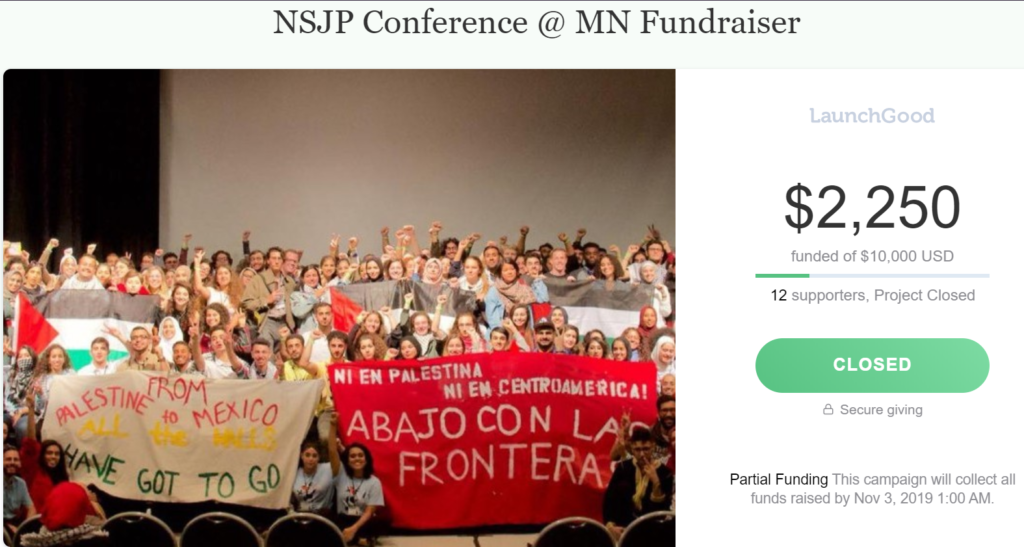
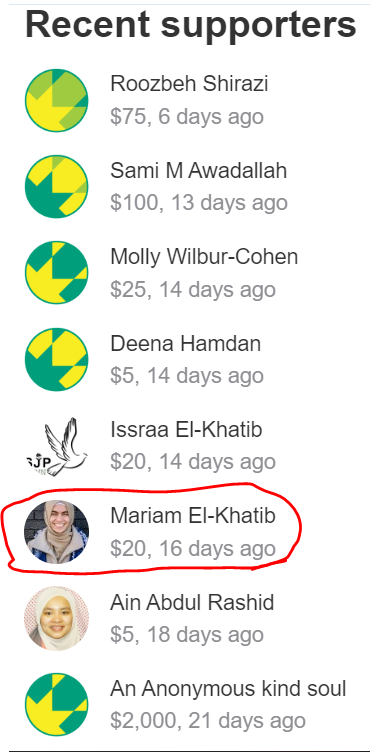
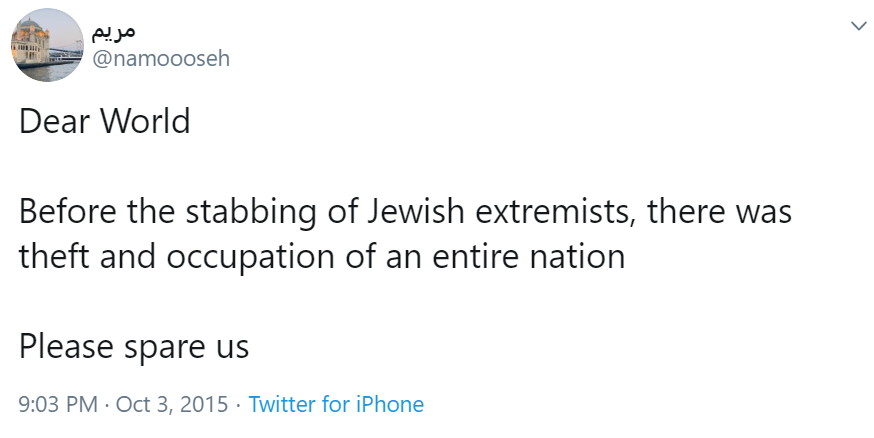


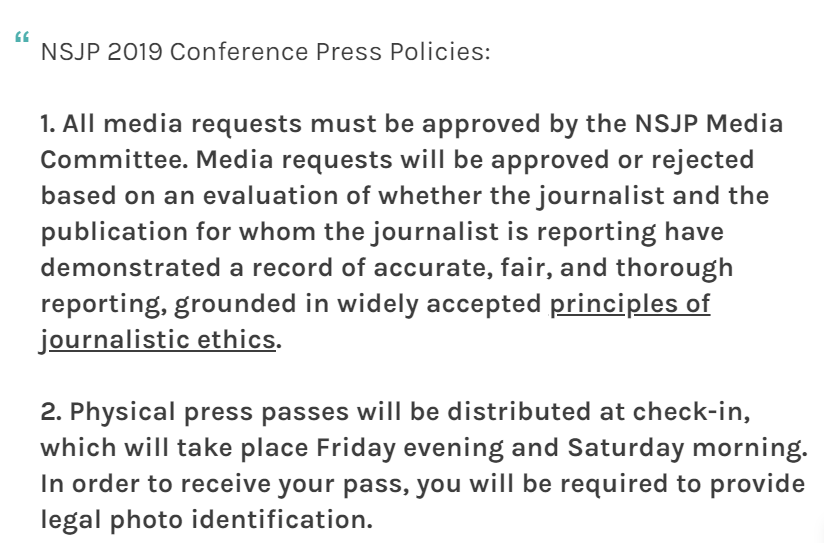
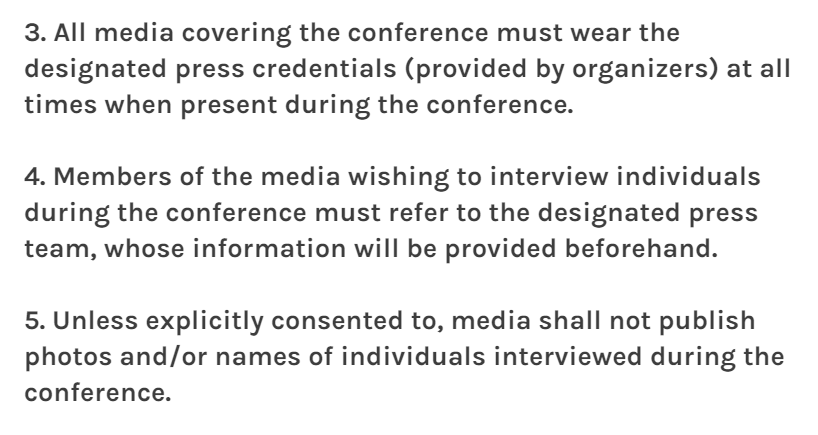
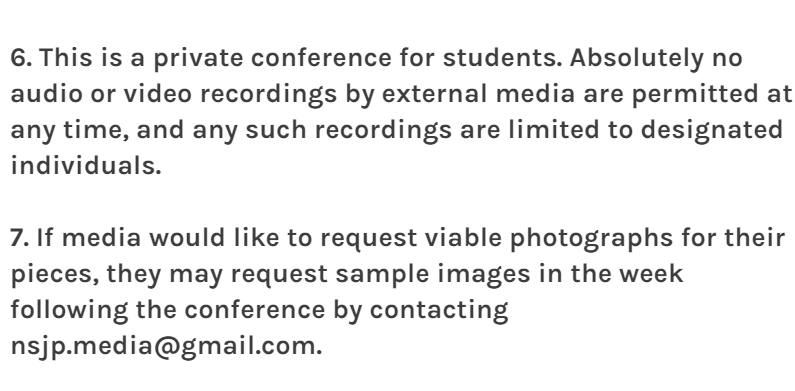
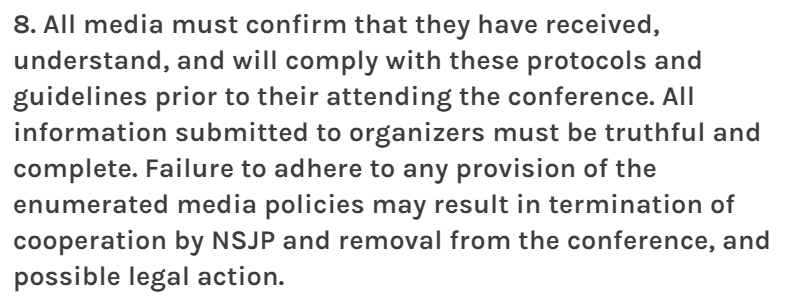
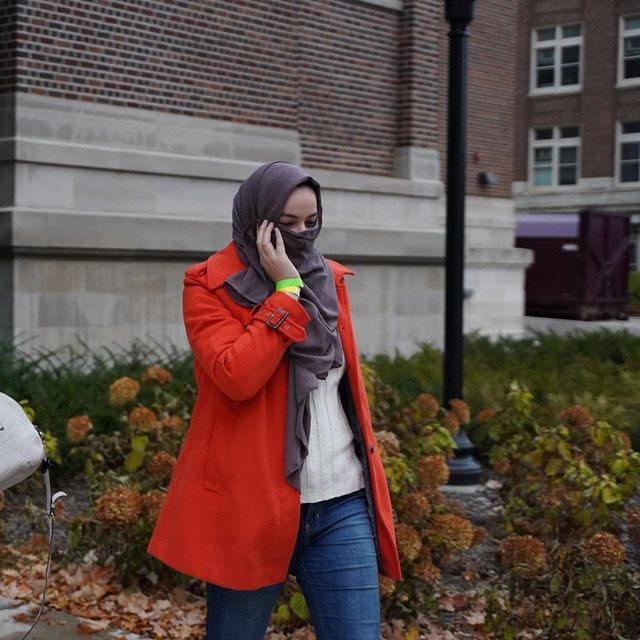
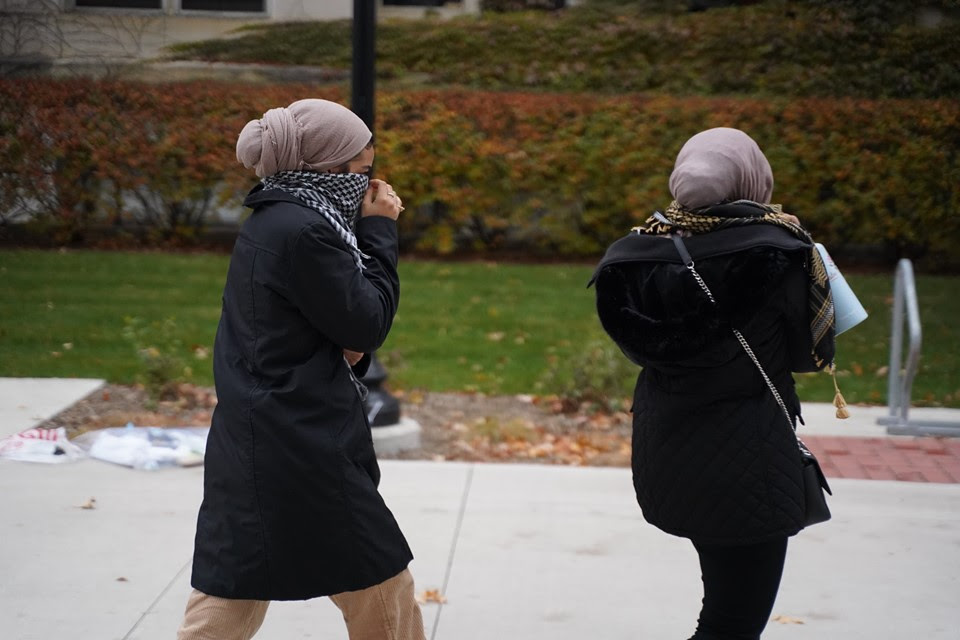
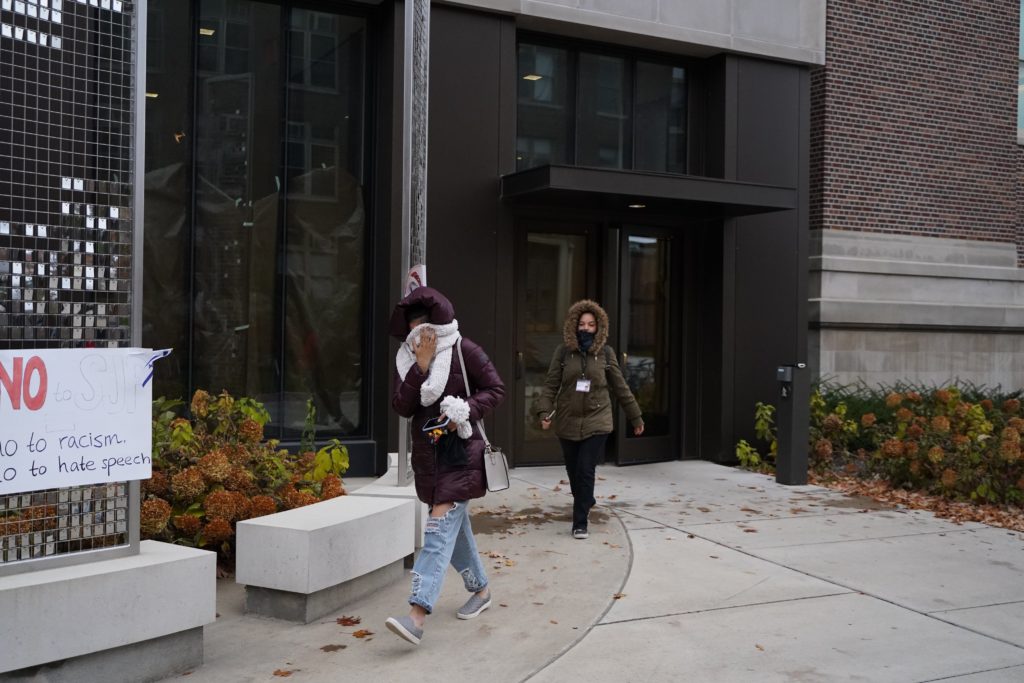
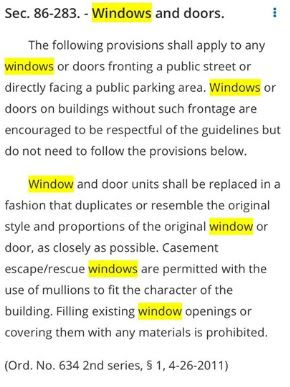

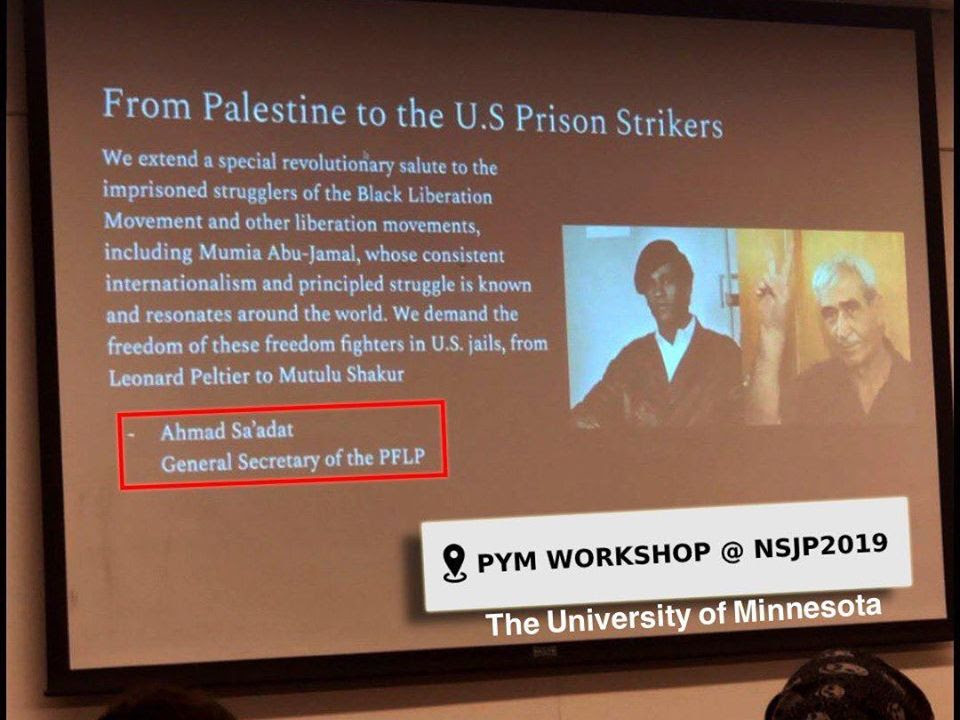
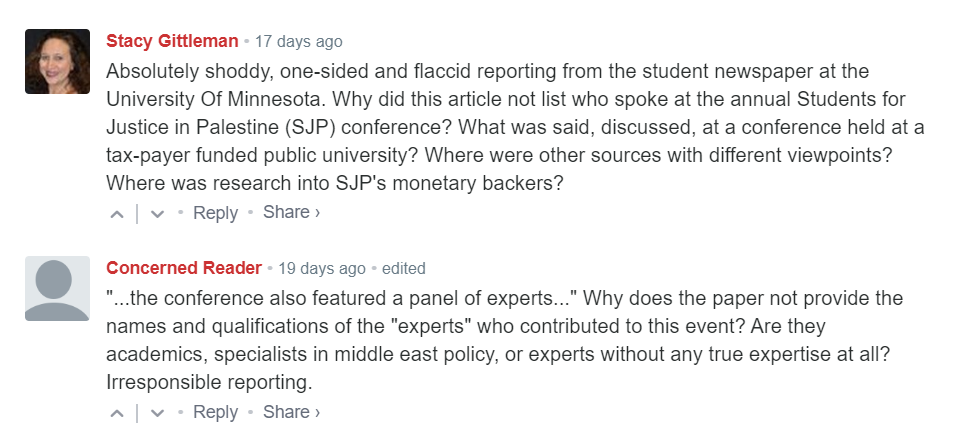
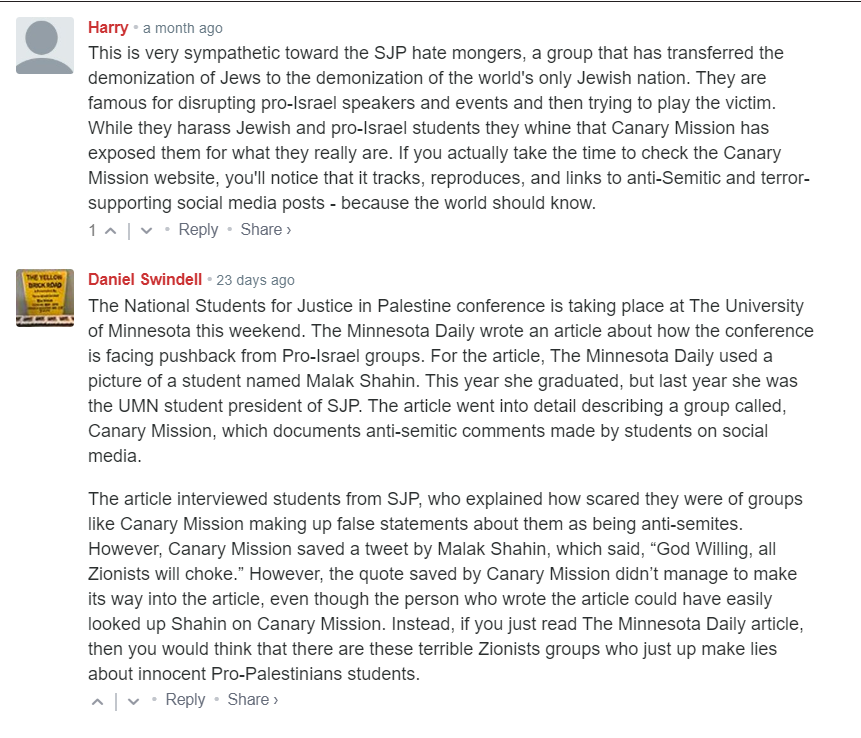

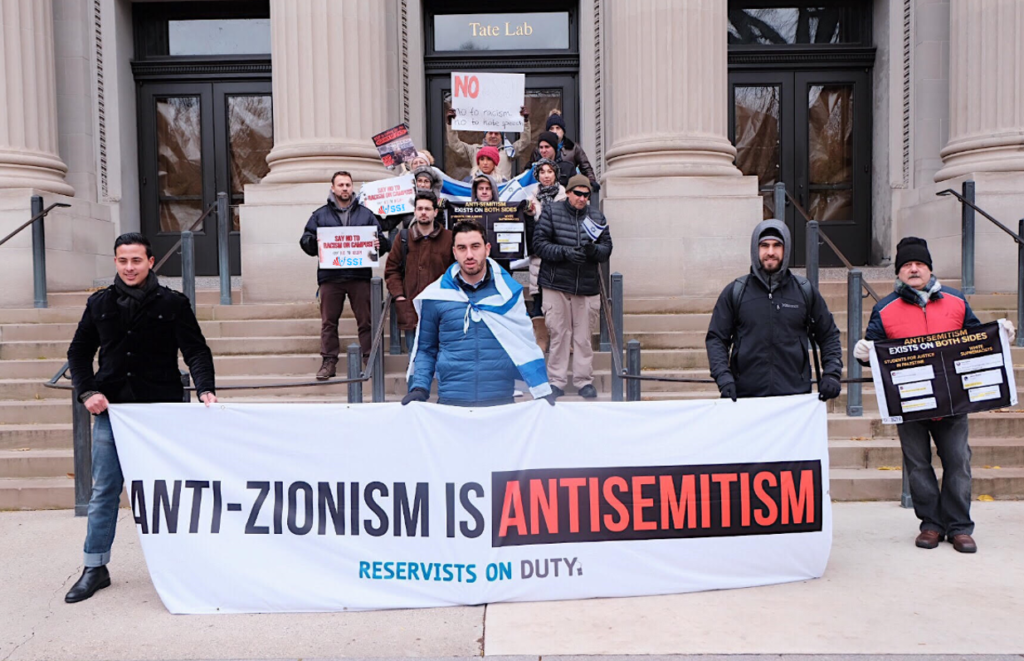







Comments
Every notice how groups who include words like “justice” or “peace” in their monikers stand for anything but those words.
Meanwhile at LI’s favourite liberal arts college,
https://www.algemeiner.com/2019/11/24/oberlin-college-students-erect-memorial-to-palestinian-islamic-jihad-terrorists/?fbclid=IwAR2Mtwc3wJCRLE9TJdy7j1qMTwUxbAGjpw4Wzowk1duEkrOuDJi2r93IeY4
Yes, lets all celebrate Cancel Culture! Deplatform! Demonitize! Destroy!.
Maybe you can show how those who wish to ban Dennis Prager and Ben Shapiro how to do it.
Unless there is actual violence, property crime, or disruption, then there should be a free and open forum – and you can schedule your evidence like the above next door around the same time and inform people.
Is there any hope with the way our FBI and CIA have been running, that they are investigating/infiltrating these terror linked groups?
I find it incredibly sad and alarming that in a span of 19 years, the push for islam, with its anti-semitism and violence, has accelerated and spread.